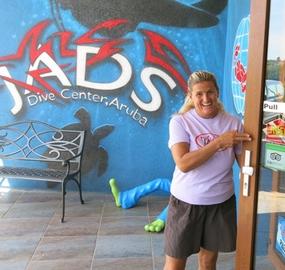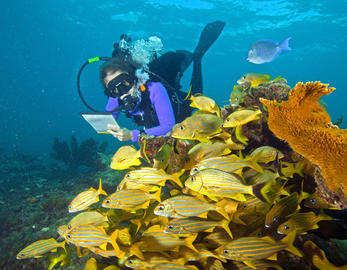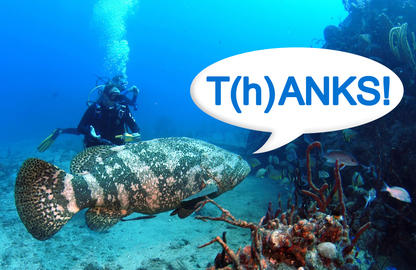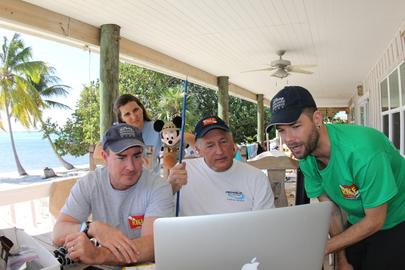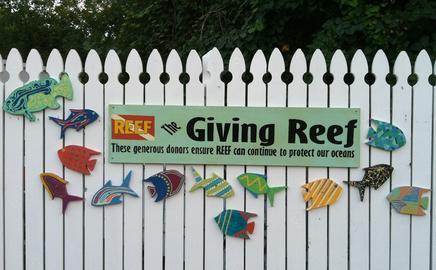REEF members are at the heart of our grassroots marine conservation programs. Over 50,000 divers, snorkelers, students, and armchair naturalists stand behind our mission.
This month we highlight Susan Hieter. Susan has been a REEF member since 2001, and has conducted 38 surveys. She recently moved to Aruba and is enjoying getting back in the water as a REEF surveyor. Here's what Susan had to say about REEF:
When and how did you first volunteer with REEF or become a REEF member? How did you first hear about REEF?

